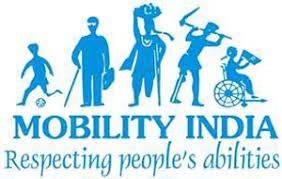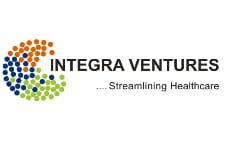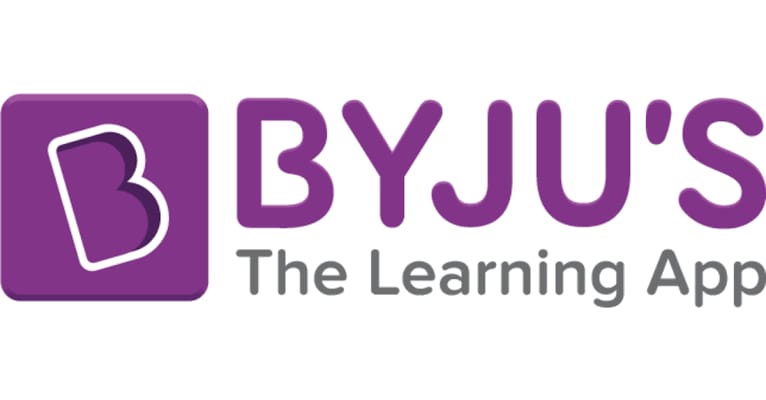











Read More
The mission of the M.Sc. in Clinical Psychology programme is to prepare competent and effective professionals committed to generalising clinical practice with the ability to respond to the needs of individuals, families, groups, communities, and organizations. The programme is committed to understanding the mental health issues of human beings. It aims at identifying and addressing community needs and issues, including those related to mental abuse and cultural diversity. M.Sc. in Clinical Psychology Course will enable individuals to prepare for these challenges.
Year wise Course Details
Courses for this semester
This course provides a comprehensive overview of psychological disorders, exploring their definitions, classifications, and the underlying psychological, biological, and social factors contributing to their development. Students will gain an understanding of various categories of disorders, including mood, anxiety, psychotic, personality, and neurodevelopmental disorders. Through lectures, case studies, and interactive discussions, students will develop critical thinking skills and a compassionate understanding of the challenges faced by individuals with psychological disorders. This course serves as a foundational step for further study in psychology, mental health, or related fields.
This course provides an introduction to the fundamental principles of cognitive psychology, focusing on the processes involved in sensation, perception, learning, and memory. Students will explore key theories and empirical findings related to how humans process information and engage with their environment. The curriculum emphasizes understanding the cognitive mechanisms underlying behavior, including attention, learning theories, and the complexities of memory systems. Through lectures and practical sessions, learners will develop critical insights into cognitive processes and their applications in real-world contexts, preparing them for advanced studies in psychology.
This course provides an in-depth exploration of the philosophical foundations underpinning clinical psychology. It addresses the evolution of clinical psychology as a science and a practice, examining the epistemological, ethical, and cultural dimensions that influence clinical theories and interventions. Students will analyze major philosophical debates related to human behavior, mental health, and therapeutic change, with a focus on understanding how different philosophical perspectives shape clinical approaches and treatment methodologies. The course encourages critical thinking and reflection on the nature of mental illness, the role of the therapist, and the concept of self in the therapeutic context, equipping students to integrate philosophical insights into their clinical practice.
This course explores the intricate biological foundations of human behavior, emphasizing the neural, genetic, and biochemical processes underlying emotions, sleep, arousal, and stress responses. Students will examine how these biological mechanisms interact with psychological, social, and cultural influences to shape behavior. The course provides insight into the functioning of the nervous system and consciousness, as well as foundational knowledge on the physiological techniques used to study these phenomena, helping students understand the brain-behavior connection in a comprehensive biopsychological framework.
Positive Psychology focuses on the scientific study of human strengths, flourishing, and well-being. The course explores how people thrive at individual, relational, and societal levels, with topics ranging from happiness, optimism, and resilience to gratitude, mindfulness, and meaning in life.
This internship provides hands-on experience in community psychology, allowing students to actively engage with an organization’s mission, structure, and the communities it serves. Through this program, interns will explore the community's unique cultural, social, and economic aspects, assess challenges, and observe interventions aimed at fostering well-being. The internship emphasizes applying theoretical concepts in real-world settings, promoting cultural competence, and enhancing professional skills vital for a career in psychology. It also encourages continuous self-reflection, helping interns grow both personally and professionally as they bridge academic knowledge with practical application in community contexts.
The Fundamentals of Statistics course provides a comprehensive introduction to the essential principles and techniques of statistical analysis. Designed for students from various academic backgrounds, this course equips learners with the foundational knowledge and practical skills necessary to understand, interpret, and apply statistical methods in a wide range of fields.
Co-curricular activities will equip the students to enhance and engage with various sections of the society and formulate agendas of social and cultural events, seminars, workshops, awareness programs etc. It will also allow them to participate in community matters.
Courses for this semester
The course aims to enhance students' understanding of research methodology by covering the theory of science and both qualitative and quantitative research methods. It seeks to develop critical thinking skills through literature review across various domains, enabling students to analyze and synthesize research effectively. Additionally, the course fosters competency in planning, conducting, evaluating, and presenting research projects while equipping students with fundamental knowledge of research methods, report/dissertation procedures, and basic data analysis techniques for practical application. Through this, students will integrate theoretical research knowledge with practical skills, preparing them for academic and professional research endeavors.
This course equips educators with the skills to design and deliver effective teaching sessions, applying adult learning principles and diverse educational methodologies. It emphasizes critical reflection on teaching practices, peer feedback, and collaborative learning to foster continuous improvement and teamwork. Participants will also develop strategies to assess learning outcomes and enhance communication and interpersonal skills in diverse classroom settings.
This course is designed to enhance students' abilities in reading, writing, communication, and interviewing, particularly as they apply to research and professional settings. Through a combination of theoretical instruction and practical application, students will develop key competencies that are essential for effective communication and critical analysis in the field of psychology and other related disciplines. The focus is on building skills that are applicable in both academic and professional contexts, emphasizing clarity, precision, and a deep understanding of the communication process.
This course is designed to enhance students' personal, social, and professional skills through active engagement in co-curricular activities. By participating in diverse activities, students will develop leadership, teamwork, creativity, and critical thinking while fostering a sense of social responsibility. The course integrates experiential learning, encouraging students to reflect on their personal growth and the impact of their contributions to their communities.
This course offers a comprehensive foundation in psychotherapy, focusing on developing essential skills, understanding therapeutic phases, and applying evidence-based techniques across various psychological approaches. Students will learn core psychotherapy skills such as active listening and empathy, explore the therapist’s qualities for effective practice, and gain insights into ethical considerations like confidentiality and informed consent. The curriculum covers techniques from psychoanalytic, non-Freudian, behavioural, and cognitive-behavioural schools, enabling students to understand and apply diverse therapeutic methods. By synthesizing theoretical knowledge with practical application, the course equips students with the competencies needed for effective and ethical therapeutic interventions.
This course provides a comprehensive introduction to the field of personality psychology, focusing on foundational concepts, key theories, and assessment techniques. Students will explore psychodynamic, learning, humanistic, and existential approaches to understanding personality, gaining in-depth knowledge of each framework. The course emphasizes the development of research skills and a critical orientation toward personality studies, helping students identify general themes and patterns within the field. Additionally, it introduces various personality assessment techniques, enabling students to apply theoretical knowledge in practical contexts. By the end of the course, students will possess a well-rounded understanding of personality psychology and its applications in research and practice.
This course provides a detailed exploration of psychological disorders, focusing on diagnostic criteria, etiological factors, and intervention strategies. Students will gain a solid understanding of DSM-5 and ICD-10 diagnostic frameworks, enabling accurate identification of various disorders. The curriculum delves into the etiology of disorders, emphasizing predisposing, precipitating, and protective factors that influence vulnerability and resilience. It introduces psychopharmacological interventions and evidence-based psychotherapeutic approaches tailored to specific disorders, including anxiety, somatoform, mood, substance use, and addictive disorders. Additionally, students will learn to assess and intervene in schizophrenia spectrum, personality, sexual, and neurodevelopmental disorders. Through a comprehensive understanding of psychopathology models, ethical principles, and psychological evaluation techniques, the course equips students with the skills necessary for effective clinical assessment, diagnosis, and intervention.
This internship program is designed to provide students with hands-on experience in applying psychological principles and techniques in real-world, multidisciplinary settings. It focuses on developing professional skills essential for working as a psychologist, including case history taking, conducting mental status examinations, and implementing intervention strategies. Through direct engagement with mental health issues, students will integrate theoretical knowledge with practical applications, enhancing their ability to address complex psychological challenges. The internship also emphasizes continuous self-assessment, fostering both personal and professional growth, and preparing students to contribute effectively to the field of psychology in diverse organizational contexts.
Courses for this semester
MOOCs-CE IV is designed to provide students with a comprehensive understanding of key concepts and theories related to the subject matter. The course emphasizes the development of critical thinking skills, enabling students to analyze information and propose effective solutions to complex problems. Participants will enhance their communication abilities, both in writing and speaking, ensuring they can articulate ideas clearly. Additionally, students will apply their knowledge to real-world situations and engage in collaborative projects, fostering teamwork and a cooperative learning environment.
Techno-Professional Skills-II focuses on developing students' abilities to accurately read, summarize, and write research articles in the field of psychology. Emphasizing the APA format, students will learn to abstract essential ideas from complex research, construct concise, evidence-based arguments, and describe problems operationally for empirical study. The course enhances students’ proficiency in professional writing standards, helping them articulate psychological concepts clearly and persuasively while adhering to the conventions of the field.
Research Ethics course establishes a foundational understanding of empirical research, emphasizing the importance of ethical considerations in the research process. Students will explore relevant guidelines, policies, and codes related to ethical research practices while studying ethical theories and concepts. The course covers critical issues in research ethics, such as responsibility in research, ethical vetting processes, and scientific misconduct. Additionally, students will develop skills for presenting arguments related to ethical inquiries and learn about sampling, data collection, analysis, and reporting procedures. They will also acquire knowledge of basic data analysis procedures for practical application in their research endeavors.
The course focuses on developing students' skills in critically reviewing and assessing scientific literature. Students will learn to write and present comprehensive overviews of relevant literature for specific research topics. The course emphasizes the identification and utilization of key textbooks, reviews, papers, and journals pertinent to their research interests. Participants will gain an understanding of how to critically read and evaluate research studies, develop appropriate research methods, and implement effective sampling and data collection techniques. Additionally, students will explore various research methodologies and apply them in their own research projects.
Generic Elective (GE) is offered as online mandatory course for the students to get enrolled. It provide an affordable and flexible way to learn new skills, advance their career and deliver quality educational experiences at scale.
Rehabilitation Psychology focuses on the psychological principles and practices that support individuals with disabilities and chronic health conditions in their journey toward recovery and improved quality of life. The course covers the meaning of ability, disability, and rehabilitation, emphasizing current trends and the application of rehabilitation strategies in various contexts. It explores different models and approaches to rehabilitation, providing students with knowledge of psychological interventions used in this field. Additionally, the course highlights the role and responsibilities of rehabilitation psychologists, ensuring adherence to ethical and professional standards.
The Basics of Psycho-Oncology course explores the psychological challenges and psychiatric disorders associated with cancer. It covers the impact of stigma, effective management of comorbid mental health conditions, and approaches to palliative care and psychotherapy. Students will gain practical skills in communication and addressing grief complexities in oncology. The course emphasizes understanding and supporting the emotional well-being of cancer patients.
Community Psychology course explores the relationship between individuals and their communities, focusing on addressing social issues through active community participation. It introduces a community-based approach to mental health care, emphasizing prevention, crisis intervention, and consultation. Students will gain insights into societal concerns, community-level interventions, and the values of community psychology. The course also covers strategies for empowering communities and fostering holistic approaches to mental health care.
Psycho-diagnostics course will cover issues in the assessment of personality using self-report measuresand cognitive functions such as intelligence and memory. This course is meant to provide students with skills of administering, scoring, interpreting and conveying report in clinical settings using simulated labs and field exposure. A part of this course will be linked to a community service course where students will conduct free assessment camps in community settings such as schools catering to poor students; NGO’s working with children etc.
Neuropsychology is a branch of psychology. It is concerned with how a person's cognition and behavior are related to the brain and the rest of the nervous system. Professionals in this branch of psychology often focus on how injuries or illnesses of the brain affect cognitive and behavioral functions.
Forensic psychology involves generating scientific knowledge and clinical techniques to help answer legal questions arising in criminal, civil, contractual, or other judicial cases or scenarios.
Clinical Supervised Internship-III provides students with the opportunity to develop and refine their professional skills as psychologists in a multidisciplinary setting. The course emphasizes real-world application of theoretical knowledge, particularly in mental health interventions, case history taking, and mental status examinations. Through hands-on experience, students will navigate the complexities of mental health practice, engaging in continuous self-assessment to foster both personal and professional growth. This internship bridges the gap between theory and practice, preparing students to work effectively and contribute meaningfully within the field of psychology.
MOOCs-CE III is designed to deepen students' understanding of key concepts and theories through course materials and practical examples. The course emphasizes critical analysis of information, enabling students to develop evidence-based solutions to complex issues. Participants will enhance their communication skills through writing, presentations, and constructive feedback. The course also focuses on applying knowledge to real-world situations and improving collaborative abilities by engaging in group projects and discussions, thereby fostering a cooperative learning environment.
Courses for this semester
The course will provide every individual to maintain an optimal state of physical, emotional, mental, social and spiritual wellbeing. Adopting a healthy lifestyle is essential to attain this. In this course the idea of physical, mental and social wellness is explored by effectively managing the lifestyle
The students will be going to Organizations/NGO/Rehabilitation centres for one day in a week besides their regular theory classes. Every week they will submit their internship reports and meet for Individual Conferences and Group Conferences (IC/GC).
This course allows students to follow a particular topic in depth and develop independent research skills. It helps the students to gather primary data, to write a report covering a review of relevant literature, the research question, and explanation and justification of the design, a description of the conduct and analysis of the data, and a discussion of the findings therein.
A course designed to make the student aware of stress and how it can impact his/her quality of life. It will provide methods for identifying stressors and strategies to effectively manage them. Students will be able to construct a personalized lifestyle management program.
Child Disorders and Management prepares teachers, learners, service providers, and community mental health professionals to apply developmental theories and research to the understanding of social learning and behavior challenges of children and adolescents. The course focuses on the developmental process and addresses differences between normal development and developmental differences from early childhood/preschool through adolescence and young adulthood.
This course provides a comprehensive review of the scientific and professional literature analysing key research findings on the “psychology of terrorism.” The course will identify, describe, and evaluate what contribution psychological theory and research have made to understanding terrorists and terrorism and the impact on victims. Typologies and group differences in terrorism will be explored. Current and future research directions in studying terrorism and counterterrorism are offered.

CST- Common scholarship test is a national and international level online MCQ based examination funded for intellectual empowerment by Assam down town University.
CST- Maximum enrolment each year is 269 seats and any 10+2 students can apply. Adtu is northeast India’s first placement driven university to provide 100% scholarship benefits worth 30 cr.
CST aims to inspire brilliant and competent students to pursue further education. Accredited with a prestigious grade by NAAC, UGC and AICTE.
Explore more scholarships that can help you reach out your goal with financial aid.
This scholarship is valid on the basis of the board/university examination
| 95% & above | 100% Scholarship on all semester |
| 90%-94.9% | 50% Scholarship on all semester |
| 80%-89.9% | 25% Scholarship on all semester |
This scholarship is valid on the basis of the board/university exam
| National & International Level | 100% Scholarship on all semester |
| State Level | 50% Scholarship on all semester |
| District Level | 25% Scholarship on all semester |
This scholarship is valid on the basis of the board/university exam
| National & International Level | 100% Scholarship on all semester |
| State Level | 50% Scholarship on all semester |
| District Level & NCC Certificate Holder | 25% Scholarship on all semester |
Discover a multitude of world-class amenities and cutting-edge resources at Assam down town University, enhancing your academic journey to new heights.
The Start-Up & Incubation Centre at Assam down town University provides a supportive environment for young entrepreneurs to develop and grow their business ideas. The center provides mentorship, funding, and networking opportunities to help innovative ideas become successful businesses.
SFURTI scheme to support rural entrepreneurs and innovators, an initiative by the Ministry of MSME
TIDE 2.0 scheme for ICT-based startups which provides a grant of Rs. 4L and Rs. 7L under EiR and Grant categories respectively, an initiative by the Ministry of MeitY.
dtVL Ideation, an incubation program for early-stage entrepreneurs with a market-ready solution/product, offering interest-free loans up to Rs. 2 lakhs.
Sprout UP, an incubation program for students, faculties, and researchers with innovative business ideas, prototypes, or technology solutions.





























.png)




















"I am a BBA student of 3rd semester. I hail from Bhutan. I vow that I am having a great experience i...
"AdtU is amazing. I am a BBA student of 2019-22 batch and I am just grateful for the amount of oppor...
Let us be grateful to the people and place who makes us happy. They are the charming gardeners whom ...
Currently I am pursuing MBA in Assam Down Town University. MBA is the professional course through wh...
AdtU is a university that focuses on giving knowledge, education and simultaneously making the stude...
The Assam downtown University has been a great learning experience. The university has provided me w...
My experience with AdtU has been splendid one indeed. Little needs to said about its scenic infrastr...
As a student I am very glad that I have got an opportunity to study here in Assam downtown universi...
My name is Sakhyajit Roy. I?m from Tripura. I joined the university on Auguest, 2017 as a student of...
I share immense pleasure to share my post graduate program experience in Assam down town University....
AdtU is a platform where I got golden opportunities to feed my zeal for knowledge through the dynami...
I am fortunate to get an opportunity to study here in Assam Downtown University. The best thing abou...
Our university is one of the best place for developing ourselves in the field of research and acedem...
ADTU is a university that is very good interms of infrastructure, academics and placements. Our tea...
It is one of best private colleges in North East India, it also provides a good environment for ed...
ADTU is a good University which provides the students with best quality lectures and ensures comfort...
The environment of Assam downtown university is very pleasant.The department of BMLT is very good a...
The university has all the necessary facilities and amenities for students . The classrooms and the ...
Assam downtown University is well recognised all over india. In the ongoing pandemic situation it ha...








